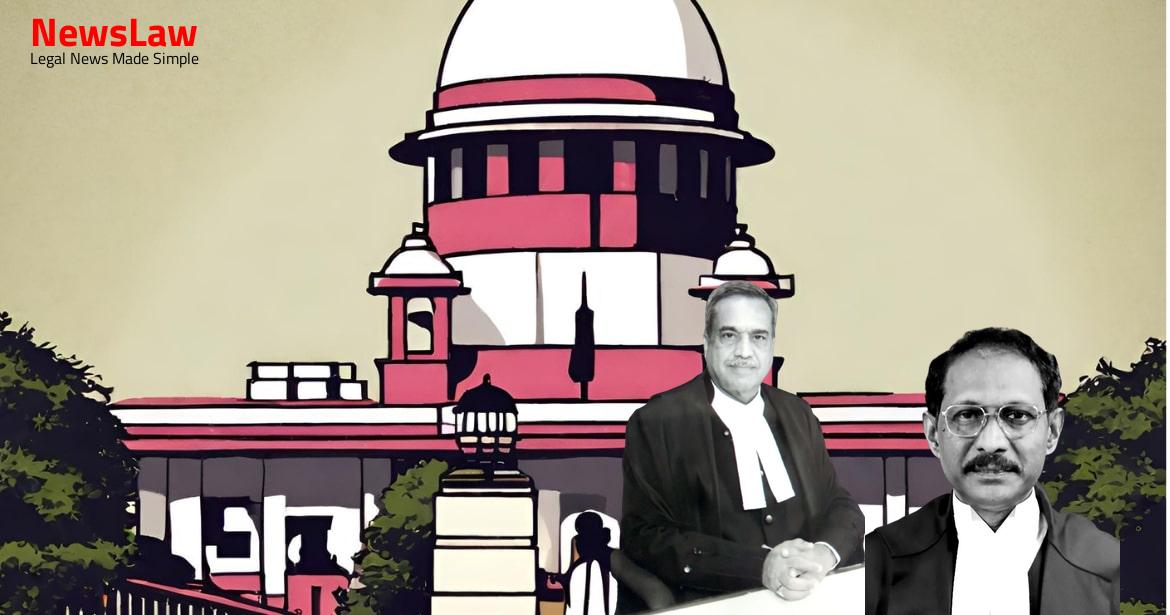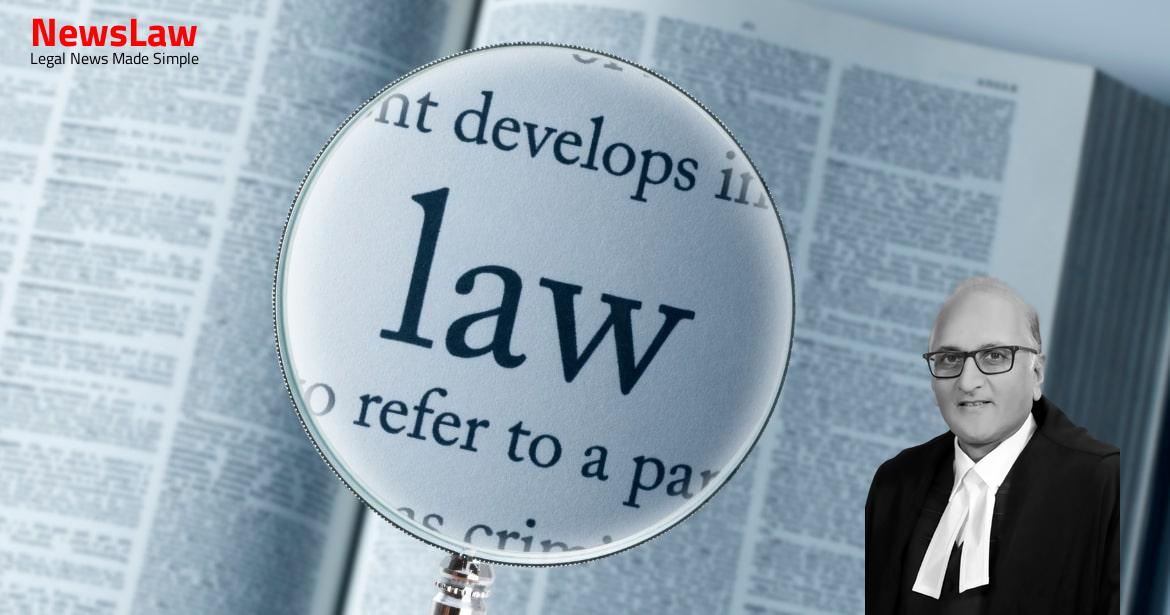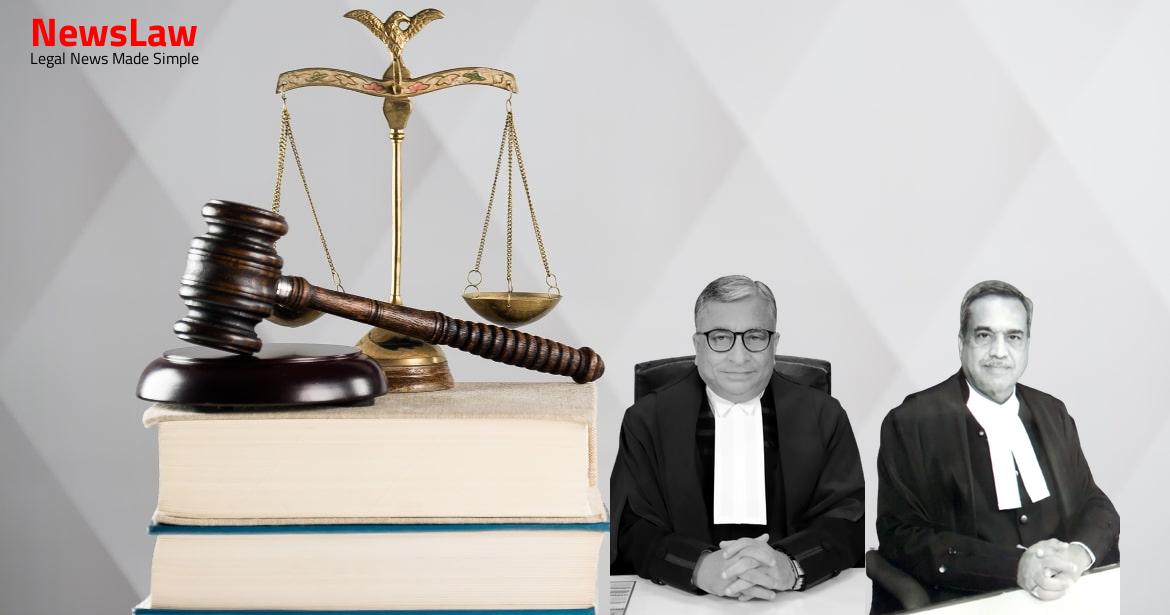As common question of law and facts arise in this group of appeals, all these appeals are decided and disposed of together by this common judgment and order. The learned CIT (A) held that Section 158BFA provides for levy of interest for late filing of return of block assessment in response to the notice under Section 158BC similar to the provisions of Section 234A. 06.2002 and therefore, the interest cannot be validly levied under Section 158BFA(1) in a case where notice under Section 158BD was issued prior to 31.05.2002 and in the present case the notice was issued on 28.11.1997. It was observed that in the present case the return was filed on 19.01.1999 and at the relevant point of time there was no provision to pay self- assessment tax along with the return of income and therefore no interest was leviable under Section 158BFA(1). before adding the words “under Section 158BC”, section itself indicates the procedure that was required to be followed by the Assessing Officer, is only in terms of the very provisions of Chapter XIV-B of the Act and therefore Section 158BC as well as 158BFA(1) are even otherwise attracted and just because the Legislature thought it fit to add or to mention Section 158BC by way of amendment through Finance Act, 2002, it would not make any difference to the earlier provision of Section 158BD which even otherwise envisages within itself the provisions and applicability of Section 158BD and 158BFA(1). Now, so far as the liability to pay the interest – applicability of Section 158BFA to persons who have not been issued notice under Section 158BC prior to the amendment in Section 158BD by Finance Act, 2002, it is vehemently submitted by Shri Kapoor, learned Senior Counsel appearing on behalf of assessee that in the present case admittedly the present assessee was never issued notice under Section 158BC, but was issued notice only under Section 158BD. It is submitted that in view of the above factual position, Section 158BFA applies only where a return “as required by notice under Clause (a) of Section 158BC” has not been furnished within time. 3
It is further submitted that the department’s argument before the High Court was that amendment in Section 158BD vide Finance Act, 2002, introducing the requirement of issuing notice under Section 158BC to the “other person”, applied even to pending proceedings is erroneous and against the Constitution Bench decision of this Court in the case of Commissioner of Income Tax (Central)-I, New Delhi Vs. 5 It is submitted that even the submission on behalf of department that issuance of notice under Section 158BC is a mere formality and that no notice under Section 158BC is required to be issued to “other person” even after the amendment to Section 158BD vide Finance Act, 2002, is concerned, it is submitted that the said submission is also erroneous for the following reasons : “(i) (iii) In any event, this argument does not answer the contention of the assessee that section 158BFA on a plain reading, applies only where a return “as required by a notice under clause (a) of section 158BC” has not been furnished within time. as rightly pointed out by the learned ASG, post 31 May, 2003, in case of a search, the provisions of 153A to 153C apply and that section 153C is pari materia with 158BD.” 6 Making above submissions, it is prayed to hold that in absence of the notice under Section 158BC, served upon the assessee – “other person”, the Assessing Officer was not : 11 : justified in levying the interest under Section 158BFA. Now, so far as the levy of surcharge under proviso to Section 113 of Income Tax Act is concerned, it is vehemently submitted that as such the said question is now covered in favour of the assessee by the Constitution Bench decision of this Court in the case of Vatika Township Private Limited (supra) (Para 37 to 40).
However, at the relevant point of time Section 140A did not apply to Section 158BC and hence there was no liability to deposit tax along with the return. It is submitted that pursuant to the search conducted on 13.02.1997, Section 158BD notice was issued to the assessee (“other person”) to file return for the block period 1987-88 to 1997-98, whereafter the Assessing Officer passed the order of assessment under Section 158BD and determined the income. 2 It is submitted that the interest under Section 158BFA(1) of the Act is levied to compensate the government for delay in filing or non-filing of return by the assessee pursuant to determination under Section 158BC / 158BD of the Act.
It is submitted that therefore it is very clear that when the return was filed by the assessee for the block period under Section 158BC, there : 15 : was no requirement to pay tax under Section 140A (1) of the Income Tax Act and the entire liability was limited to period of delay and not be delayed in payment of tax. It is submitted that as observed by this Court, Chapter XIV-B of the Act deals with block assessment which lays down a special procedure for search cases. 6 It is submitted that the levy of interest under Section 158BFA(1) is linked to the period of filing of return and that period alone is to be taken into consideration particularly as the levy of interest being only for delayed period of filing return. Relying upon Notes of Clauses appended to Clause 64 of the Finance Bill, 2002, whereby said words “under Section 158BC” was inserted it is submitted that the words “under Section 158BC” in Section 158BD has been inserted so as to clarify that Assessing Officer shall proceed against such “other person” under Section 158BC. 8 It is submitted that if the contention of the assessee that Section 158BFA would not be attracted unless notice under Section 158BC is provided then for the period prior to the clarificatory amendment brought in prior to Finance Act, 2002, is accepted, in that case, the provision of Section 158BD will be rendered nugatory qua Section 158BFA.
It is submitted by virtue of amendment the Legislature proposed to make those assessees who are filing return under Section 158BC also liable to pay tax and interest under Section 140A. The very fact that there is no provision in Chapter XIV-B for applying provision of Section 140A, clearly shows that Legislature never intended to apply the provisions of Section 140A before 01.06.1999. 7.10
It is submitted that in the impugned judgment and order the High Court has explained the rationale behind introduction of Section 158BC in Section 140A and has specifically held that “the liability of payment of interest does not stop merely on filing of return but it is attracted in terms of Section 140A in payment of tax in terms of Section and even now the provision of Section 158BFA(1) and 140A operate independently”. Now insofar as the levy of the surcharge under proviso to Section 113 of the Income Tax Act is concerned, the said issue is now not res integra in view of the decision of this Court in the case of Vatika Township Private Limited (supra). Gupta, (2008) 4 SCC 362] itself, it was acknowledged and admitted that the position prior to the amendment of Section 113 of the Act whereby the proviso was added, whether surcharge was payable in respect of block assessment or not, was totally ambiguous and unclear. 379, para 35) ( i )
Whether surcharge was leviable with reference to the rates provided for in the Finance Act of the year in which the search was initiated; or ( ii ) the year in which the search was concluded; or ( iii ) the year in which the block assessment proceedings under Section 158-BC of the Act were initiated; or ( iv ) the year in which block assessment order was passed. CST
Also Read: https://newslaw.in/case-type/civil/acquisition-of-land-and-deemed-lapse-under-the-act-2013/
[1985 Supp SCC 205 : 1985 SCC (Tax) 447 : (1985) 155 ITR 144], this Court, while explaining the conceptual meaning of a tax, delineated four components therein, as is clear from the following passage from the said judgment: (SCC pp. Any uncertainty or vagueness in the legislative scheme defining any of those components of the levy will be fatal to its validity.” It is clear from the above that the rate at which the tax is to be imposed is an essential component of tax and where the rate is not stipulated or it cannot be applied with precision, it would be difficult to tax a person. When there is a case to which the computation provisions cannot apply at all, it is evident that such a case was not intended to fall within the charging section.” 3. : From the French word gérable: meaning a confused state; turmoil.] situation which this provision had created and is amply reflected in the proposals which were submitted in the following terms: “In the case of a block assessment, there are two problems in relation to the levy of surcharge. Even if it is assumed that reference in the Finance Act to Section 113 is a sufficient authority to levy surcharge, the second problem is that the Finance Act levies surcharge on the amount of income tax on the income of a particular assessment year whereas in the block assessment tax is levied on the undisclosed income of the block period. It was also acknowledged that even if Section 113 empowered to levy surcharge, since block assessment tax is levied on the undisclosed income of the block period, absence of specific assessment year in the block assessment would render the levy suspect. This proviso reads as under: “Provided further that the amount of income tax computed in accordance with the provisions of Section 113 shall be increased by a surcharge for purposes of the Union as provided in Paras A, B, C, D or E, as the case may be, of Part III of the First Schedule of the Finance Act of the year in which the search is initiated under Section 132 or requisition is made under Section 132-A of the Income Tax Act:” Addition of this proviso in the Finance Act, 2003 further makes it clear that such a provision was necessary to provide for surcharge in the cases of block assessments and thereby making it prospective in nature. Gupta, (2008) 4 SCC 362] treating the proviso as clarificatory and giving it retrospective effect is not a correct conclusion.
To that extent the impugned judgment and order passed by the High Court and the assessment order qua the surcharge under proviso to Section 113 of the Income Tax Act deserves to be quashed : 32 : and set aside. It is observed and held that the essence of the new procedure under Chapter XIV-B is a separate single assessment of the “undisclosed income”, detected as a result of search and this separate assessment has to be in addition : 33 : to the normal assessment covering the said period. As already mentioned in brief by us, Chapter XIV-B of the Act which deals with block assessment lays down a special procedure for search cases. In contradistinction, when it comes to payment of tax on the undisclosed income relating to the block period, the rate is specified in Section 113 of the Act. From the above, it becomes manifest that Chapter XIV-B comprehensively takes care of all the aspects relating to the block assessment relating to undisclosed income, which includes Section 156-BA(2) as the charging section and even the rate at which such income is to be taxed is mentioned in Section 113 of the Act. Section 5 of the Act enumerates the scope of total income and prescribes, inter alia, that it would include all income which is received or is deemed to be received in India in any previous year by or on behalf of a person who is a resident. Thus, a diagnostic of Chapter XIV-B of the Act leads to irresistible conclusion that it contains all the provisions starting from charging section till the completion of assessment, by prescribing a special procedure in relation thereto, making it a complete code by itself.
It could only be that for assessing undisclosed income, the charging provision is Section 158-BA(2) alone.” 1
Thus, with respect to assessment of undisclosed income for the block period including the filing of the return etc., the normal assessment proceedings including under Section 140 of the Income Tax Act shall not be applicable. At this stage it is required to be noted that it is the case on behalf of the assessee that the interest only follows the principal and in this case the principal being the tax payable, there was no liability to pay the tax along with the return prior to 01.06.1999 which came to be introduced by insertion of the words “Section 158BC” in Section 140A and therefore the liability to pay interest cannot arise if there was no liability to pay the tax itself along with the return at the relevant time, has no substance.
: 39 : Under the existing provisions, if any tax is payable on the basis of any return required to be furnished under section 139 of section 142 or section 148, the assessee shall be liable to pay such tax along with interest payable under the Act before furnishing the return and the return shall be accompanied by proof of payment of such tax and interest.
It is further proposed to provide that after a block assessment under section 158BC has been made, any amount paid under sub-section (1) of section 140A shall be deemed to have been paid towards the block assessment under section 158BC. In view of the above, it is proposed to amend section 140A of Income Tax Act to provide for the requirement of payment of self-assessment tax at the time of filing the return under section 158BC relating to block assessment of search cases.” 3 Thus, on conjoint reading of the above Notes on Clauses and Memorandum, it is very clear that the Legislature originally intended to make the assessee liable to pay taxes and interest when the return was filed under Section 139 or under Section 142 or Section 148. Thus, by virtue of the amendment, a new class of assessee was brought onto the statute-book whose income are subject to be assessed under Chapter XIV-B, in section 140A compelling them to pay self-assessment tax. 4 No so far as the main submission on behalf of the assessee that in absence of any notice under Section 158BC served upon the concerned assessee and in view of insertion of the : 42 : words “Section 158BC” in Section 158BD inserted vide Finance Act, 2002, there shall not be any liability to pay interest under Section 158BFA is concerned, the aforesaid submission is absolutely erroneous and has no substance.
5 No so far as the submission on behalf of the assessee that the words “under Section 158BC” has been inserted in Section 158BD vide Finance Act, 2002 and therefore, in absence of any notice under Section 158BC prior to the amendment, there shall not be any liability to pay interest : 43 : under Section 158BFA is concerned, a perusal of the Notes on Clauses appended to Clause 64 of the Finance Bill, 2002, it appears that the same is clarificatory in nature.
Also Read: https://newslaw.in/case-type/civil/taxation-of-engineering-design-drawings-goods-or-services/
6 At this stage, it is required to be noted that as observed by this Court in the case of Vatika Township Private Limited (supra), Chapter XIV-B prescribes a special procedure for computation of income for the block period in search and seizure cases. 7
Case Title: K.L. SWAMY Vs. THE COMMISSIONER OF INCOME TAX (2023 INSC 28)
Case Number: C.A. No.-003704-003704 / 2012



